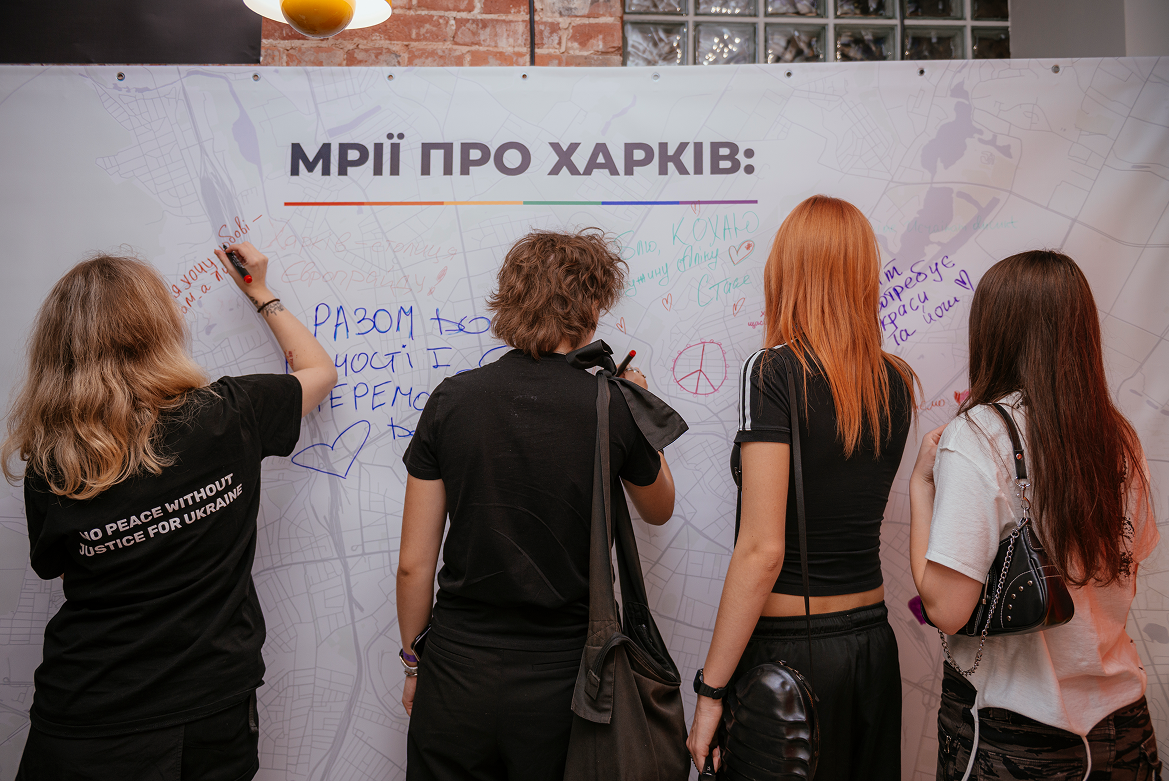About PrideFest, Pride March in the form of motor rally, and honouring fallen LGBTQ+ military personnel
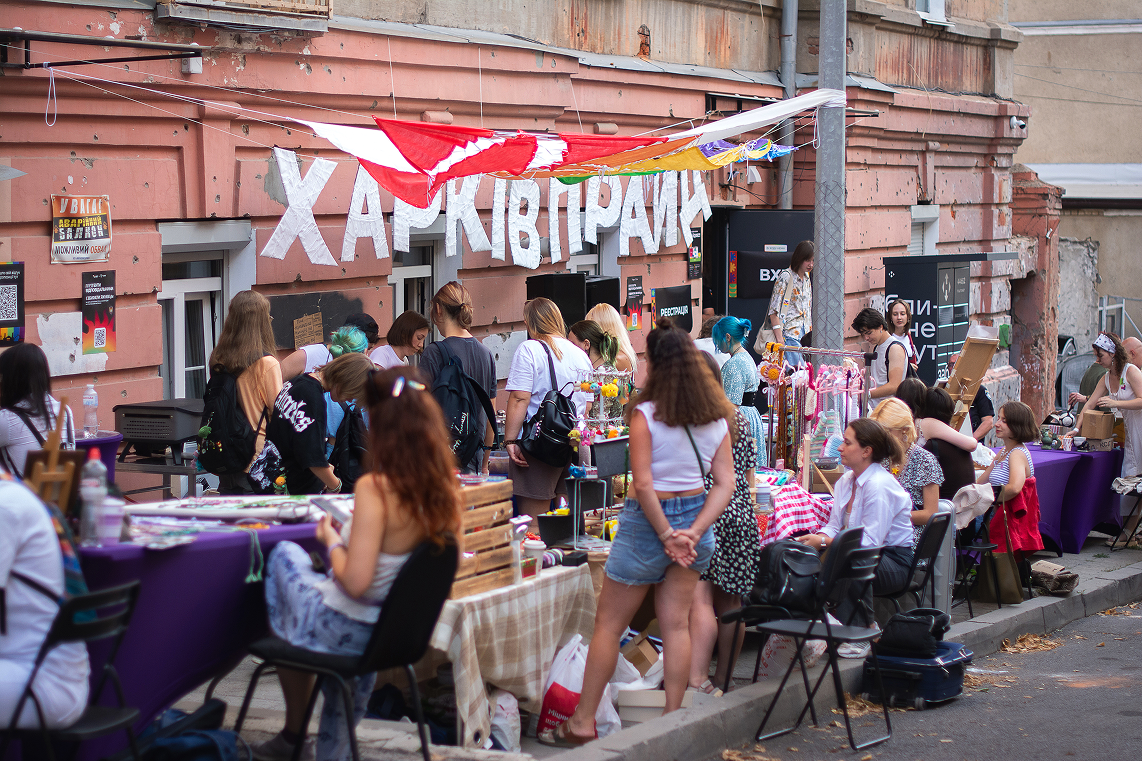
In 2025, activists, representatives and allies of the LGBTQ+ community held the Kharkiv Pride 2025 in the Ukrainian city of Kharkiv. It is located 20 kilometers from the front line and is attacked daily by russian missiles and drones. It is the largest and most extensive LGBTQ+ event held in Eastern Ukraine.
Fighting for one's rights is important and necessary even during wartime, so the format of the LGBTQ+ community's Pride March in the form of columns of cars moving through the city is the only safe and visible option in the realities in which Ukrainians live.
The seventh KharkivPride, organised by the “WA Sphere” and the KharkivPride team, has come to an end. It lasted from late August to early September 2025 and brought together educational, cultural and charitable initiatives.
It kicked off with a two-day PrideFest on 30-31 August, continued with a memorial event on 5 September, and ended with Pride March in the form of a motor rally on 6 September.
The event not only united people around the idea of equality, supported the community, and helped them acquire important skills.
Despite attempts by homophobic organisations to disrupt the event, the festival was peaceful and inspiring, bringing together hundreds of people. Here are the details.
The central element of PrideFest was a lecture series, where participants discussed topical issues in an atmosphere of mutual respect and support. On 30 August, the discussions began with a panel entitled “Why should I donate?”, where volunteers (Daria Richthofen, Meryam Yol and Andriy Lyman) talked about the challenges of volunteering, the importance of donations and ways to help without money. The discussion was moderated by Yakov Lavrinenko, co-chair of the “WA Sphere”. Participants shared stories of how ordinary people become saviours and emphasised the transparency of fundraising.
This was followed by a panel on the trauma of war witnesses, moderated by Ulyana Bontsio, with speakers Kostyantyn Andriiv and Viktoria Babiy. They discussed how personal stories affect society and how to avoid manipulation. At 3 p.m., there was a discussion on transgenderism and solidarity, where speakers Hrich, Arson-Vohnyan Fitsyk, and Rina Kompaniets discussed conflicts in the community and ways to achieve unity, sharing real stories of trans people.
The lesbian panel at 4:30 p.m., moderated by Svitlana Yukhimovich, brought together speakers Anastasia Popova and Liza Ivolzhenko. They discussed the contribution of lesbians to the war and society, emphasising visibility, self-respect, and the fight against patriarchy. The day ended with a panel on LGBTQ+ military personnel, moderated by Oleksandr Demenko and Yakov Lavrinenets, where Hanna Gainutdinova and EMINEM talked about coming out on the front lines, the challenges of service, and the need to support veterans.
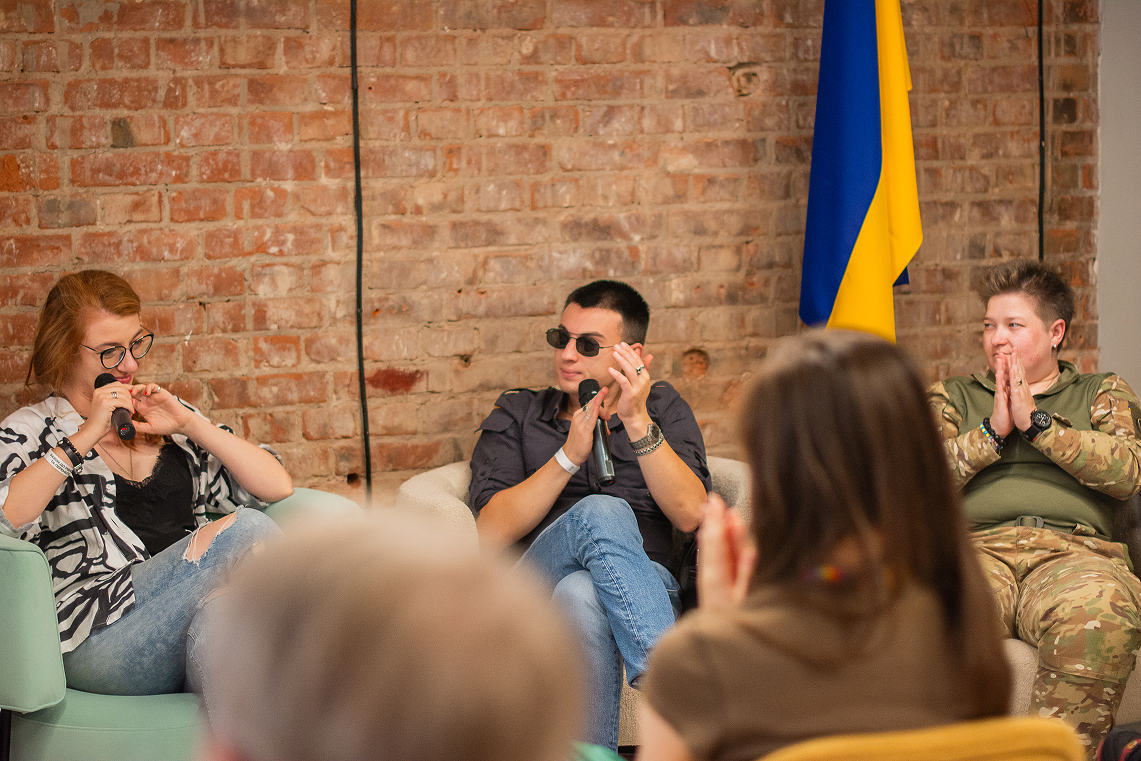
On 31 August, the lecture series continued with discussions on lesbian activism (Svitlana Yukhimovich, Anna Sharygina, Olga Yashchenko), freedom in times of war (Ivanna Skyba-Yakubova, Oleksandr Demenko, Olena Huseynova), russian fake news against LGBTQ+ people (Kostyantyn Andriyiv, Olga Yakovleva, Oleksandr S'edin), and queerness in art (Ana More). These conversations were not only informative but also inspiring, emphasising the connection between LGBTQ+ rights and the national struggle.
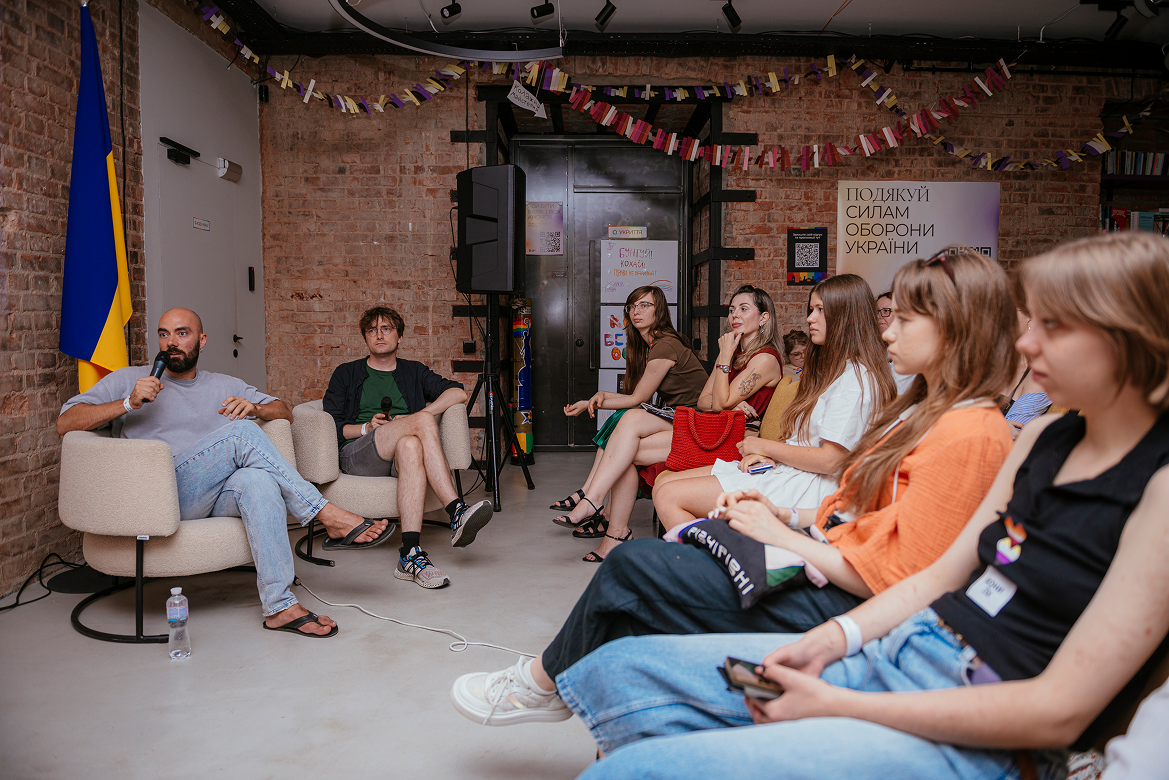
The cultural part of PrideFest added emotional colour. On 30 August at 7 p.m., a screening of short films took place as part of SUNNY BUNNY, a queer film festival. The audience saw films: “What Will You Do If the War Continues?” by Vladislav Plisetsky, “History” by Vadim Mochalov, “Lost” by Veronika Gavrikova, and “Flowers and Beasts” by Victoria Shved. These films reflected on war, identity, and resilience, resonating with the experiences of the participants.

On 31 August at 6 p.m., badactress, a Kyiv-based performer, performed hits and songs on queer themes, creating an atmosphere of celebration and unity.
.png)
The master classes were diverse and practical. Participants took part in a collage queer marathon, where they created art that reflected their identity. “Shcheznik” volunteers Yura and Emil taught participants how to weave camouflage nets, combining creativity with helping the front lines. There was also pre-medical care — first aid training, where participants learned how to respond to injuries in wartime conditions.
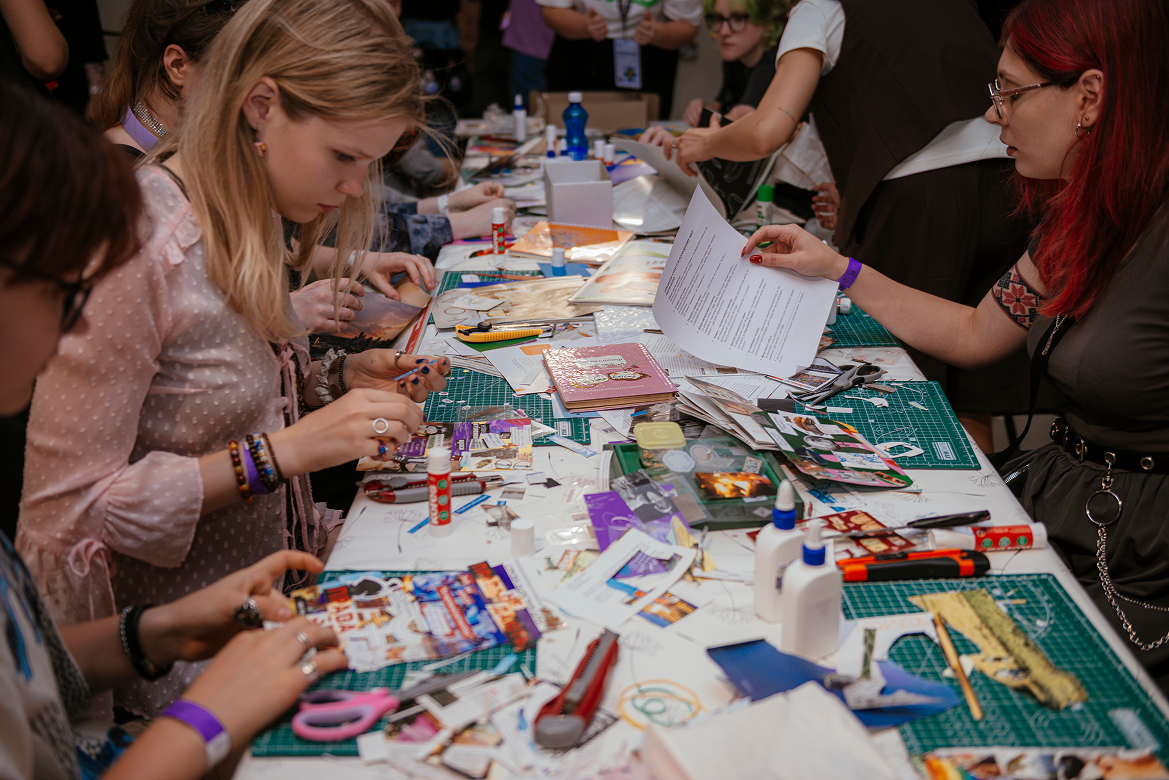
.png)

The tattoo marathon was a hit: artists tattooed queer symbols and other interesting sketches on the audience. Psychological consultations provided support to those experiencing stress from war or discrimination, creating a safe space for conversation.

The fair supported friendly businesses: sellers, such as Natalia with her marigold petal jam from the frontline zone, shared their stories. This not only helped local entrepreneurs, but also highlighted the economic contribution of the community.
On 30 August, around 30 men from “Brotherhood”, “Youth Rights”, “White Sector” and “Hetman Garrison”, carrying flags and with their faces covered, tried to break through to the hub, pushing and shoving with the police, who had blocked the road with buses. They demanded that the festival be cancelled, calling the event “propaganda of sin”: “no worse, but the same sin as drug addiction or murder”.
Discussions with Anna Sharyhina, president of the “WA Sphere”, ended without result. Participants in the homophobic rally positioned themselves as conservative nationalists, claiming that LGBTQ+ ideology harms demographics and the nation during wartime.
But we want to emphasise that homosexual orientation is not something that can be contracted and cause a person to no longer want to have children. Moreover, same-sex couples also have children, both adopted and biological. Therefore, these remarks are nothing more than an attempt to justify and rationalise their hatred.
.png)
On 5 September, a memorial event was held for fallen LGBTQ+ military personnel — a touching moment to honour those who gave their lives for Ukraine. Participants remembered the heroes, emphasising their contribution. Portraits of deceased and missing LGBT+ military personnel were placed near the Monument to the Defenders of Ukraine. Last year, there were 12 portraits here; this year, there were 27. Only three of them had their faces exposed; the rest died in fear, without coming out, without rights.
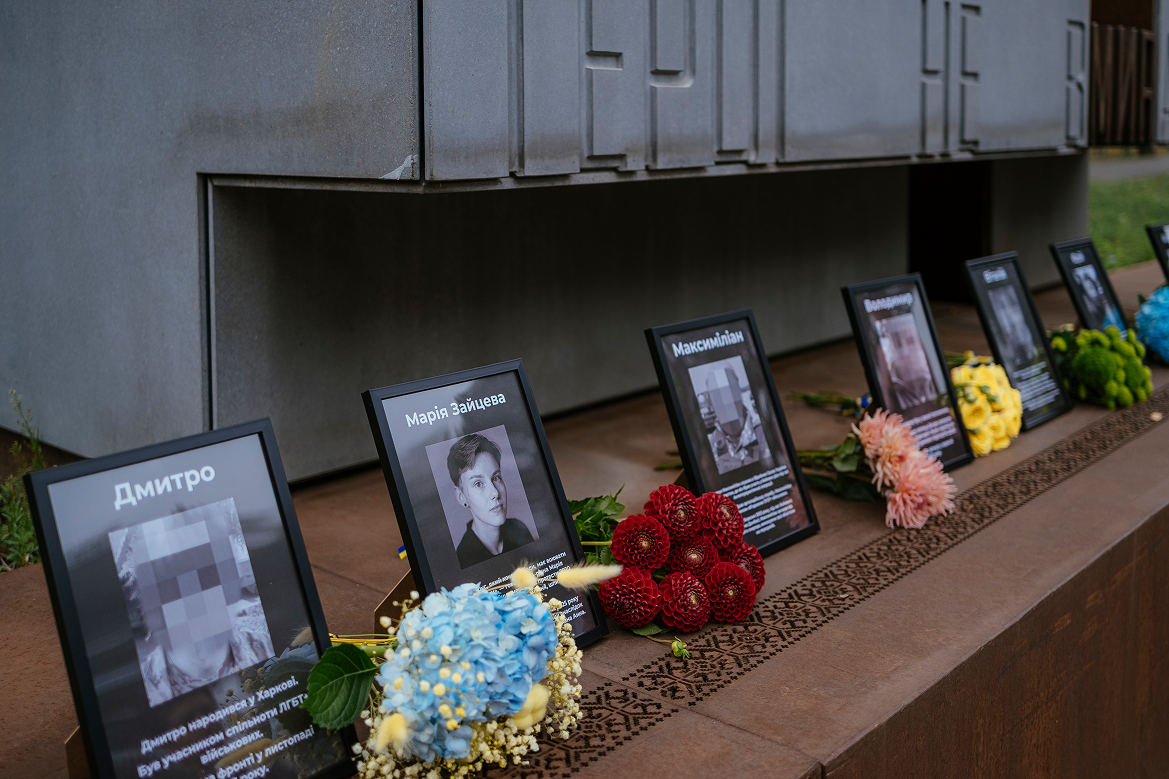
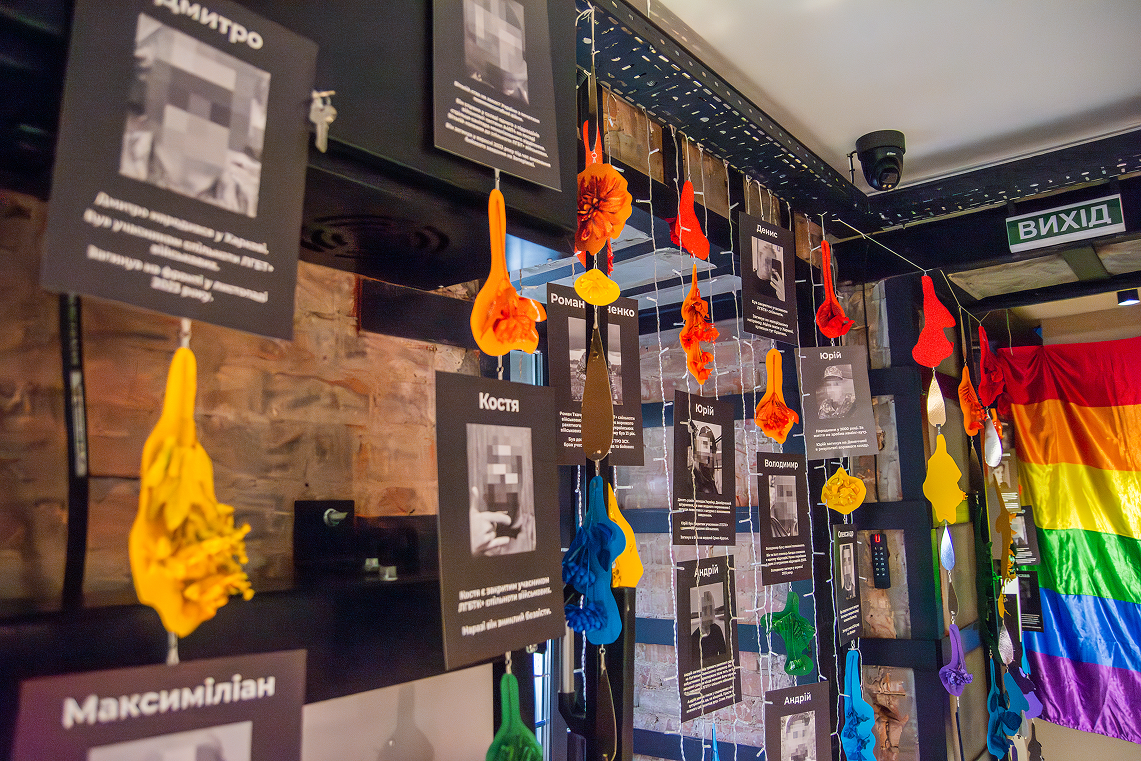
On 6 September, Pride March in the form of a motor rally gathered 16-17 cars decorated with flags and posters. The columns drove off in order: the first for hate crimes, the second for marriage equality, the third for the recognition of LGBTQI+ people in the city charter (signatures were collected for hearings), and the fourth – funds for the defence of Kharkiv, instead of spending on expensive decorations for the city.
The columns drove through the centre of Kharkiv: along Aerokosmichnyi Avenue, Sumska Street, past Shevchenko Park and wedding couples, illustrating the theme of equality. The organisers chanted slogans through a loudspeaker. In particular, we emphasised once again that “Homophobia is russia”.
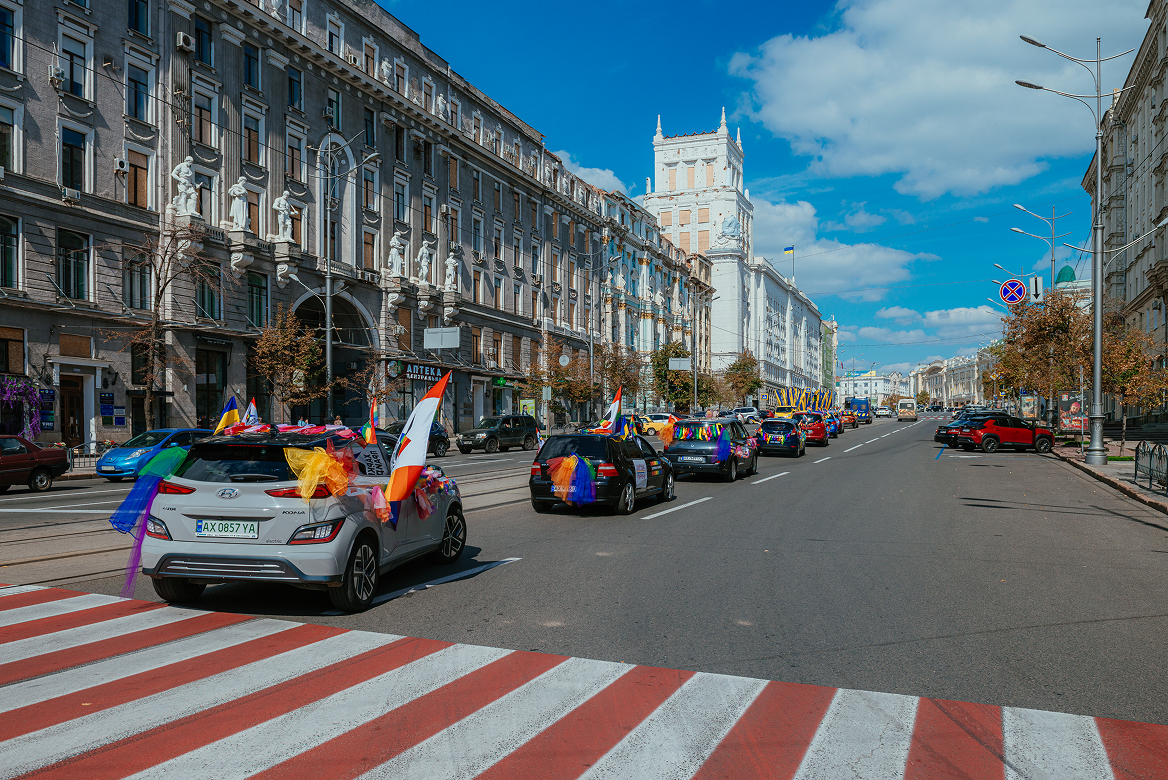
Near the State Industry Building, speeches were made, photos were taken, and a minute of silence was observed for the deceased. Co-organiser Stanislava Petlytsia emphasised: “We may have to fight our whole lives, but it's worth it”. AutoPride passed peacefully, thanks to coordination with the police.
.png)
KharkivPride 2025 became not just a festival, but a platform for change. It brought people together and reminded us that the fight for rights continues, but the community is strong and invincible. Thank you to everyone who joined us!
